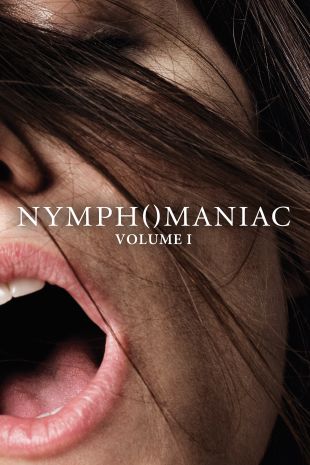
Structured more like a novel than a movie, writer/director Lars Von Trier's Nymphomaniac: Volume I consists of the first five chapters of what was always intended as a four-hour journey into sexual addiction. Knowing there's more to come makes assessing this film difficult; after all, nobody writes a review about the first half of an Adam Sandler comedy or an Iron Man movie. But since a four-hour film can't make any money in the modern marketplace, Nymphomaniac got the Kill Bill treatment and has been split into two parts for theatrical distribution.
The picture stars Charlotte Gainsbourg as Joe, a young woman whom the soft-spoken and gentle Seligman (Stellan Skarsgård) finds unconscious and beaten up outside his apartment. Wanting to help, he brings the frail-looking woman to his place and nurses her back to health. As she regains her strength, the self-confessed nymphomaniac regales her sympathetic benefactor with stories about her voracious sexual experiences, which include the loss of her virginity and her discovery of how love and sex intertwine. While the self-loathing Joe shares these frank tales, Seligman constantly encourages her not to beat herself up, and draws comparisons between her exploits and aspects of his beloved hobby of fly-fishing.

What's most striking about the first two hours of Nymphomaniac is that Von Trier is relatively subdued. Don't misunderstand; there are graphic depictions of sexual acts, and he shows almost every kind of bodily fluid imaginable. He doesn't allow us to turn away from painful emotional moments either, whether it's Joe dealing with her dying father (Christian Slater) or watching a scorned wife (Uma Thurman) unload an epic guilt trip on her straying husband after he has declared his love for the protagonist.
But while the movie contains a great deal of sensitive and explicit material, Von Trier doesn't wallow in it. The structure of the film, in which Joe shares these stories with Seligman, lessens their immediacy and intensity without negating their power -- we're given a little bit of breathing room. Skarsgård's charismatic and calming performance also helps him act as an audience stand-in for these tales.
Additionally, Von Trier's remarkable craft as a moviemaker is on display throughout -- this is a compulsively watchable film. The images flow with such ease and assurance that, even with the heaviness of the material, the two hours feel like they fly by in half the time. He's seduced us, in the best sense of the word, with fine performances, alluring imagery, and flawless editing.
Von Trier's visual skills have never been in doubt, but his worldview and storytelling are usually his Achilles' heel. Every film of his since Breaking the Waves has been a torturous exercise in cynicism, which makes it impossible to give yourself over to his work. The first half of his previous movie, Melancholia, seemed like it was going to be a clear-eyed examination of depression, but it eventually veered into pure nihilism with an ending that implied that depressed people are the only ones capable of understanding the inherent futility and meaninglessness of life.
That kind of cheap nihilism isn't in Nymphomaniac: Volume I, but then again, this is only the first part. Perhaps, taking a hint from Seligman's comment about the art of creating a fly that lures fish to bite, Von Trier has shaped an appealing first half to his story in order to gut us with a conclusion that will express his disdain for our gullibility and empathy. Maybe Seligman will turn out to be a monster of the highest order. On the other hand, if the remainder of Von Trier's film is as observant, poetic, and well-crafted as the first two hours, he may have come up with his best work in nearly two decades.
